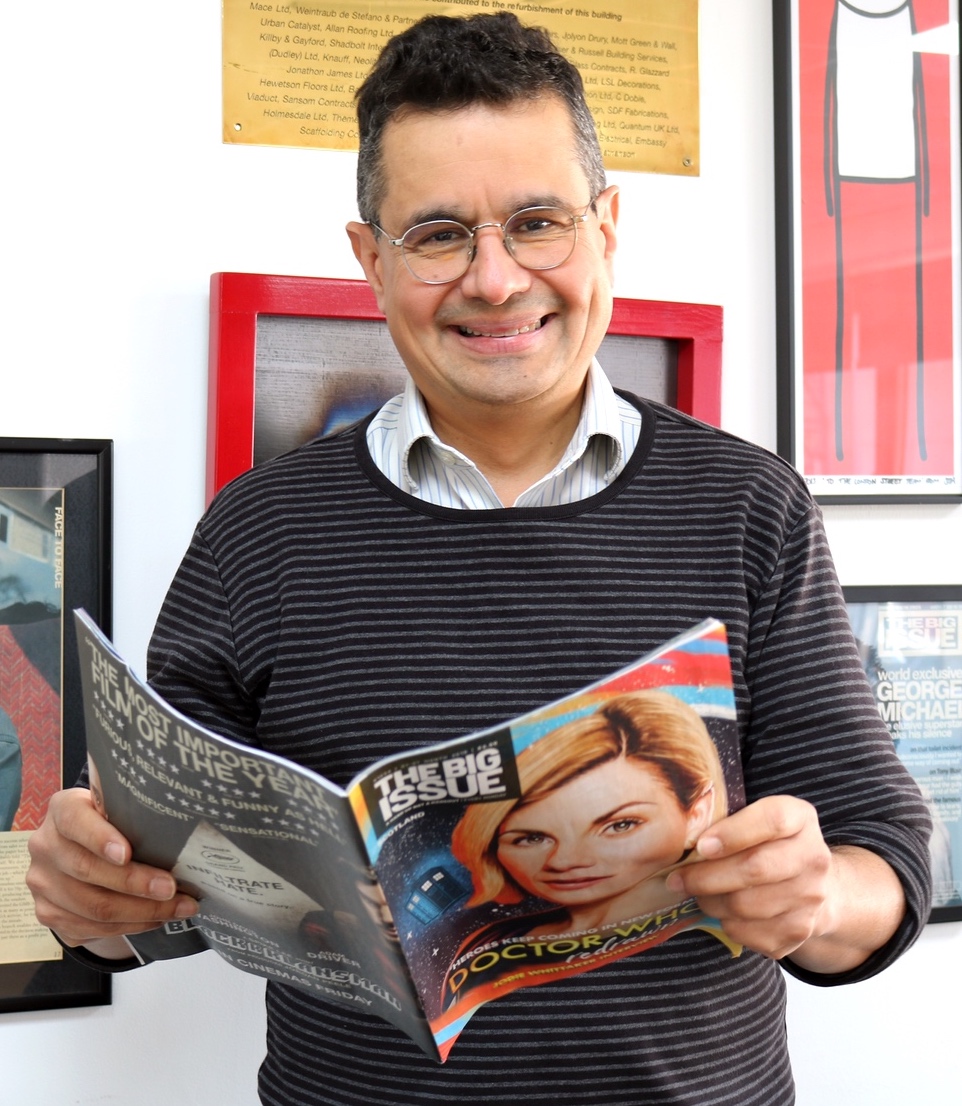How to get out of the diversity trap? Start with breakfast
Why is there such lack of diversity in the social investment sector? Danyal Sattar, CEO at Big Issue Invest and co-chair of the Diversity Forum for Inclusive Social Investment – which released its first report last week – shares four traps the sector has fallen into, and thoughts about how to avoid them
 As few as 6.5% of board directors in the social investment sector are BAME [black, Asian or minority ethnic]. Less than one in five BAME employees in the sector hold senior leadership or executive roles. Representation of female directors has fallen by 5% since 2017, and male board directors now outnumber female directors by a ratio of 2:1.
As few as 6.5% of board directors in the social investment sector are BAME [black, Asian or minority ethnic]. Less than one in five BAME employees in the sector hold senior leadership or executive roles. Representation of female directors has fallen by 5% since 2017, and male board directors now outnumber female directors by a ratio of 2:1.
It isn’t all bad news: there has been a 2% increase in female representation at executive level since 2017. But it’s clear that employment in the sector is skewed – as shown in the latest report from the Diversity Forum for Inclusive Social Investment, Inclusive Impact: A Comprehensive Review of the Social Investment Sector.
Why have we – a sector with such progressive impact goals – ended up here?
The reasons I set out below will no doubt seem obvious and perhaps naïve to those of you working on equality, diversity and inclusion. I hope though, that they help those of us who are tackling these issues for the first time or revisiting them after a few years.
First, the progress trap. Progress is only maintained with continual effort: if you stop pushing, you don’t stay where you are, you fall back. For example, some of us stopped doing what we used to do in the 1980s and 1990s: signalling that we were open to applications from all parts of society. We thought this was now obvious. But without constant effort, we slipped back. So, get your recruitment hygiene sorted out. Use processes like BeApplied to take out some of the bias from recruitment.
Second, the excellence trap. We have a certain view of what excellent, or ‘normal’, looks like (or what Grayson Perry in his excellent book The Descent of Man calls ‘default man’). The right kind of university. The right kind of background. The right kind of CV. The right kind of experience and expertise. This view takes us away from women towards men; away from working class voices and towards the middle class; and away from ethnic minorities and towards white people. The excellence trap means we never think we’re discriminating – we’re simply trying to recruit who we see as the best. The solution? Excellence isn’t good enough. We need to focus on the skills and experience that solve the problems we face. This gives us diverse backgrounds so we don’t do ‘groupthink’.
The excellence trap means we never think we’re discriminating – we’re simply trying to recruit who we see as the best
Third, the “it can’t be us” trap. Our generation, in our social sector, perpetuating patterns of discrimination – not us, surely? Unfortunately, the trap is there and the numbers verify it. Here’s how it happens. I have a regular dinner with some work friends. They are all senior in the social investment world. We meet up, eat spicy food and put the world to rights. But here is the thing: they are all men. One of the reasons why women don’t get promoted is a lack of access to these informal but influential settings. So while I’m wondering why we don’t have women in senior positions in our sector, the answer is in the mirror. It wasn’t something I particularly liked to acknowledge, as I didn’t perceive myself as sexist or misogynistic. Yet my behaviour was part of the problem.
Again, the answer is not complicated. In this case: breakfast. I am not short of colleagues who happen to be women. I now have breakfast with some of my colleagues who happen to be women who are powerful and influential in their work sphere. So now we breakfast. And put the world to rights.
Finally, the systems trap. It took me to my half century to read some of the works of the Reverend Dr. Martin Luther King. I was particularly struck by his Letter from Birmingham Jail, where he observed how organisations tend to create a pattern of behaviour worse than that of the individuals within it. Today, we have good people, but through our systems, have ended up with a pattern none of us like.
We have good people, but through our systems, have ended up with a pattern none of us like
The best way I’ve found to change systems is to form new ones, as we hope to do through the Diversity Forum. Led by Bonnie Chiu and Stephen Bediako and co-chaired by myself and Gemma Rocyn Jones, we have a diverse steering group and a grant from the Connect Fund. As well as our latest research, we have more than 30 Diversity Champions, across the sector, helping bring about practical change in their own organisations. We have also produced a toolkit setting out practical measures we can take as a sector to improve practice.
There is such good work going on out there that we can piggyback on. The team at 2027 led by Baljeet Sandhu, Ruth Ibegbuna and the teams at Koreo and Ten Years’ Time have put together another really practical initiative. Firstly, they are running a programme to support brilliant frontline workers from working class backgrounds to bring their skill sets into the foundation world. Secondly, they have launched a call for foundations to pledge that by 2027 40% of their trustees will identify as coming from the communities they exist to serve.
Timewise curates flexible employment opportunities. The UK Government has a charter for women in finance. As well as institutional finance advisor Mercer, the venture capital world has its Diversity VC initiative. The Association of Charitable Foundations is incorporating work on diversity in its ‘Firm Foundations’ initiative.
Finally, as my former colleague Claire Brown would say to me: ‘Be open to the possibility of change.’ I do think the biggest challenge in all of this is to accept the possibility that we ourselves might be perpetuating a problem. It is also us that must change.
This is not to excuse the poor behaviour by others in wider society. Nor to put blame or responsibility onto people trying hard to do the right thing. It is about being empowered by our own actions and making change, step by step. We can demonstrate the possibility of change to the wider society in which we live. In doing so, we can support all of those who have worked so long and so hard, on equality and diversity. So, we have listened. Now we must act.
The Diversity Forum report and toolkit are available here.


